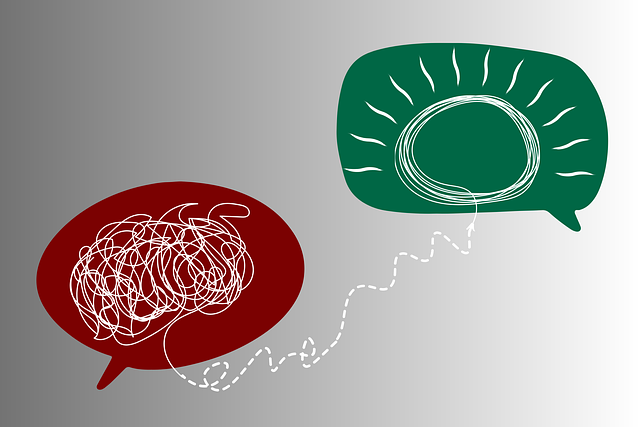Emotional intelligence (EQ) is crucial for children's social and emotional development, with early experiences significantly impacting their ability to manage emotions and build connections. Children who have faced trauma or abuse may struggle with emotional regulation, affecting various life aspects. Tailored therapy for child abuse can heal these experiences, build resilience, and foster emotional healing through specialized sessions that teach trauma processing, emotion management, and healthy relationship building. Public awareness campaigns promoting well-being techniques like positive thinking and mindfulness create supportive environments, enhancing children's emotional development and helping them overcome challenges stemming from abuse. By encouraging open communication, integrating stress management techniques, and fostering a safe, nurturing environment, parents and caregivers can significantly contribute to preventing child abuse issues and promoting their children's long-term mental health.
Emotional intelligence (EI) is a powerful tool that equips individuals with the ability to understand, manage, and empathize with their own emotions and those of others. This article explores the significance of EI in children’s development, focusing on its impact from an early age. We delve into the role of therapy as a transformative force for children affected by child abuse, providing healing and resilience-building strategies. Additionally, practical tips for parents and caregivers are offered to foster healthy emotional growth in their young ones.
- Understanding Emotional Intelligence and Its Impact on Children
- The Role of Therapy in Building Resilience and Healing from Child Abuse
- Strategies for Parents and Caregivers to Foster Healthy Emotional Development
Understanding Emotional Intelligence and Its Impact on Children

Emotional intelligence (EQ) refers to an individual’s ability to recognize, understand, and manage their own emotions, as well as empathize with others’ feelings. For children, developing EQ is crucial for healthy social and emotional development. Early experiences significantly shape a child’s capacity to regulate emotions and build relationships, which is why understanding the impact of emotional intelligence is vital, especially in light of issues like child abuse.
Children exposed to trauma or abuse may struggle with emotional regulation, leading to challenges in school, at home, and with peers. Therapy for Children, often tailored to address past experiences, can play a significant role in promoting healing and developing emotional resilience. Public Awareness Campaigns focused on emotional well-being promotion techniques, such as positive thinking and mindfulness, can also contribute to creating supportive environments where children feel understood and safe, fostering healthier emotional development.
The Role of Therapy in Building Resilience and Healing from Child Abuse

Therapy plays a pivotal role in building resilience and healing from child abuse. It provides a safe space for children to process their traumatic experiences, fostering the development of coping skills that will serve them well into adulthood. Through specialized therapy sessions tailored to their needs, children can learn to recognize and manage their emotions, develop healthy relationships, and cultivate inner strength. This supportive environment encourages expression, helping them make sense of their past and work towards a brighter future.
In addressing child abuse, therapy is not just about fixing the damage but empowering young individuals to thrive despite it. Mental health education programs designed with resilience in mind equip children with the tools to cope, adapt, and bounce back from adversity. By integrating evidence-based practices, therapists help them build emotional intelligence, fostering a sense of safety and self-worth that promotes long-lasting healing and overall well-being.
Strategies for Parents and Caregivers to Foster Healthy Emotional Development

Raising emotionally intelligent children begins with creating a safe and nurturing environment. Parents and caregivers play a pivotal role in fostering healthy emotional development by implementing effective communication strategies. Open dialogue encourages kids to express their feelings, helping them identify and manage emotions effectively. Active listening, where adults give their undivided attention, validates a child’s experiences and teaches them the value of emotional awareness.
Additionally, integrating stress management techniques into daily routines can significantly benefit children’s emotional well-being. Simple practices like mindfulness exercises or positive thinking activities can enhance resilience and coping skills. By teaching children to recognize and regulate their emotions, parents empower them to navigate challenging situations, build healthy relationships, and develop a strong sense of self—all crucial elements in preventing issues stemming from child abuse and promoting overall mental health.
Emotional intelligence is a powerful tool for healing and growth, especially in mitigating the effects of child abuse. By understanding and nurturing emotional intelligence in children through therapeutic interventions and parental strategies, we can foster resilient individuals capable of navigating life’s challenges. Therapy plays a pivotal role in building resilience, offering safe spaces for expression and processing traumatic experiences. Parents and caregivers are key contributors to this process, as their support and guidance help children develop healthy emotional regulation skills. Investing in these areas ensures that children affected by child abuse receive the necessary tools to thrive and live fulfilling lives.














